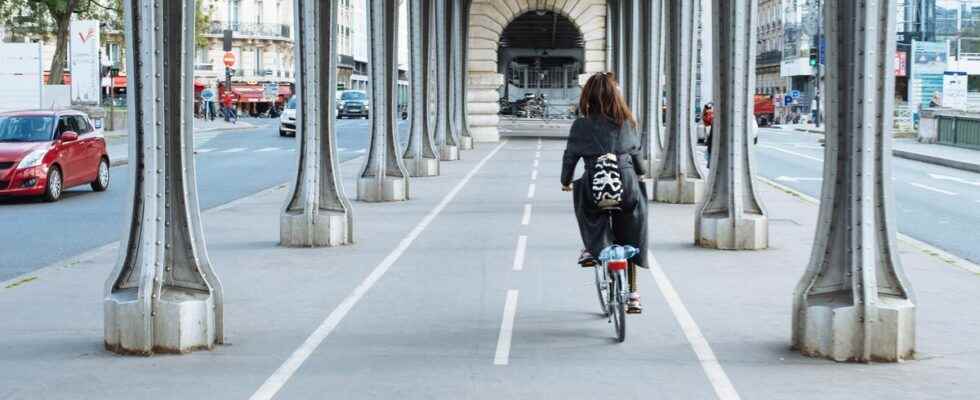In 2023, the cycling plan should experience a good pedal stroke. Launched at the end of 2018 and initially endowed with 350 million euros, this major project to promote the use of bicycles on national territory had been raised to 500 million euros as part of the post-pandemic recovery project. Yesterday, the government announced that it will benefit from a budget of 250 million euros for the year 2023 alone, the largest sum ever committed for the development of the bicycle over one year. Cycling plan which, extended, now stretches until 2027.
This amount will not be used to help households to equip themselves, the support fund for the purchase of bicycles being managed on another budget. These are 200 million devoted to infrastructure (creation, sustainability and improvement of cycle routes) and 50 million to parking (installation of bicycle parking lots, in town and near public transport stops to encourage multimodal travel ). In Matignon, the establishment of an interministerial cycling committee is also announced. After a first meeting scheduled for the fall, it will bring together all the ministers concerned with soft and active mobility twice a year.
The government states that “the multi-annual envelope remains to be defined, because it will be part of the overall reflection on transport infrastructure, based in particular on the infrastructure orientation council which will be delivered this autumn”. The executive would like framework contracts to be put in place with local authorities to ensure the correct orientation and correct targeting of the projects selected and financed. Of course, all the actors involved in the development of the bicycle welcome this investment which will make it possible to accelerate the transition aimed at supporting the population to get out of “all cars”, including in peri-urban and rural areas.
To date, according to the Ministry of Ecology, some 600 territories have been able to benefit from financial support for the realization of projects favorable to cycling. 365 million euros in subsidies have already been allocated. Finally, this plan also makes it possible to finance the training of the youngest in 2-wheel travel. Over the past three years, 160,000 primary school students have been able to receive the Know how to ride a bike training course, and the government plans to extend this training to all students in a given age group throughout the country.
